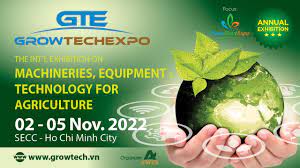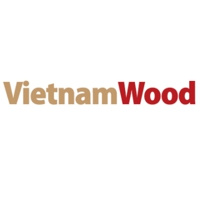- Read all
- Rice
- Fisheries
- Cassava
- Fertilizer & Pesticide
- Coffee
- Animal Feed
- Cocoa
- Seed
- Tea
- Wood
- Pepper
- Agricultural Cooperations
- Cashew
- Agricultural Investments
- Rubber
- Governmental Policies
- Sugarcane
- Agricultural Startup Ecosystem
- Corn
- Technological Innovations
- Spices
- Organic Agriculture
- Bean
- Food Manufacturing
- Fruit & Vegetable
- Agricultural Value Chain
- Flower
- Water & Waste Management
- Meat
- Processed Food
- Dairy
- Plant Originated Products
- General Agro Commodities
- Animal Originated Products
The TPP Impact on Vietnam: A Preliminary Assessment
The conclusion of the Trans-Pacific Strategic Economic Partnership (TPP) Agreement negotiations on 5 October 2015 has been hailed by the twelve participating countries as a landmark for regional economic integration. The agreement is also seen by many experts as having far-reaching regional and global strategic implications. As a member of the TPP, Vietnam will stand to benefit from the agreement both economically and strategically, but the country will also be faced with considerable challenges. How Vietnam will capitalize upon the opportunities and handle the challenges may shape the country’s economic, political and strategic trajectory for years to come.
Type Corn
Description
As a member of the Trans-Pacific Strategic Economic Partnership (TPP), Vietnam will stand to benefit from the agreement both economically and strategically, but the country will also be faced with considerable challenges.
It is estimated that the TPP may help Vietnam expand its GDP by 11% and its exports by 28% within a decade. TPP will also provide Vietnam with greater access to major markets, especially the US and Japan, and boost the export of products such as textile and apparel, seafood, aquaculture, agriculture and forestry products.
However, the TPP is likely to adversely affect industries such as the livestock industry, dairy, soybean, corn and animal feed inputs. The TPP is likely to generate a large FDI inflow into the country once it comes into force. The TPP is likely to require SOEs or designated monopolies to operate on market principles. This provides significant impetus for Vietnam to accelerate its SOE reform, especially the equitization of these enterprises.
TTP regulations on intellectual property and environment protection will add costs for some Vietnamese businesses. In the long run, however, these regulations will help drive the economy towards greater creativity and sustainability. Politically, the TPP may facilitate the mobilization of support for more economic as well as political and institutional reforms. However, it is unlikely to lead to any significant political liberalization.
The agreement will also help Vietnam strengthen its ties with the US and become less economically dependent on China. However, Vietnam will continue to seek a balance between the two great powers while adjusting its strategic position in accordance with its perception of the China threat in the South China Sea. The TPP is likely to generate certain positive impacts on Vietnam, but such impacts should not be exaggerated, and opportunities should be evaluated alongside challenges. In the meantime, the TPP should remain a case of “cautious optimism” for the country.
Reports RelatedSee more
| Publications name | Languages | Release date |
|---|---|---|
| GENETIC DIVERSITY OF QUALITY TRAITS OF JAPONICA RICE VARIETIES | English | 2021-12 |
| CASHEW INDUSTRY REPORT 2020. | English | 2020-12 |
| RUBBER INDUSTRY REPORT in 2020 | English | 2020-12 |
Events See more

Vietnamplas 2022 - Vietnam International Plastic and Rubber Industry Exhibition
23-03-2023 - 26-11-2022 09:00 - 17:00
Saigon Exhibition and Convention Center (SECC) – 799 Nguyen Van Linh Boulevard, District 7, City. Ho Chi Minh.

GROWTECH EXPO - FLORAPLANTEXPO 2021
02 - 05-11-2022 09:00 - 17:00
Saigon Exhibition and Convention Center (SECC) – 799 Nguyen Van Linh Boulevard, District 7, City. Ho Chi Minh.

VTG 2022
18 - 25-10-2022 09:00 - 17:00
Saigon Exhibition and Convention Center (SECC) – 799 Nguyen Van Linh Boulevard, District 7, City. Ho Chi Minh.

VIETSTOCK 2022 - SPECIALISED EXHIBITION OF LIVESTOCK, FEED AND MEAT PROCESSING IN VIETNAM
12 - 14-10-2022 08:00 - 17:00
799 Nguyen Van Linh, Tan Phu Ward, Dist. 7, Hochiminh City, Vietnam

VTG 2022
21 - 27-09-2022 09:00 - 17:00
Saigon Exhibition and Convention Center (SECC) – 799 Nguyen Van Linh Boulevard, District 7, City. Ho Chi Minh.
.png)
VIETFISH 2022
22 - 26-08-2022 09:00 - 17:00
Saigon Exhibition and Convention Center (SECC) – 799 Nguyen Van Linh Boulevard, District 7, City. Ho Chi Minh.
Business Opportunities See more
-
BURANI INTERFOOD is looking for Buyers in Vietnam
Type:
November 22, 2021
-
BURANI INTERFOOD is looking for Buyers in Vietnam
Type: Wholesaling Meat
November 22, 2021
-
BURANI INTERFOOD is looking for Buyers in Vietnam
Type: Wholesaling Meat
November 22, 2021
-
BURANI INTERFOOD is looking for Buyers in Vietnam
Type: Wholesaling Meat
November 19, 2021
-
BURANI INTERFOOD is looking for Buyers in Vietnam
Type:
November 19, 2021
-
Indian purchaser looking for high quality cashew nut kernel from Vietnam
Type: Exporting Cashew
Mar 14, 2016
534
Limitless database of qualified and verified agricultural partners
124
Exclusive buy & sell leads on specific agricultural commodities
24
Agricultural events in Vietnam and Asia Pacific region
Stay informed!
Enter your email address below to receive updates each time we publishes new content
